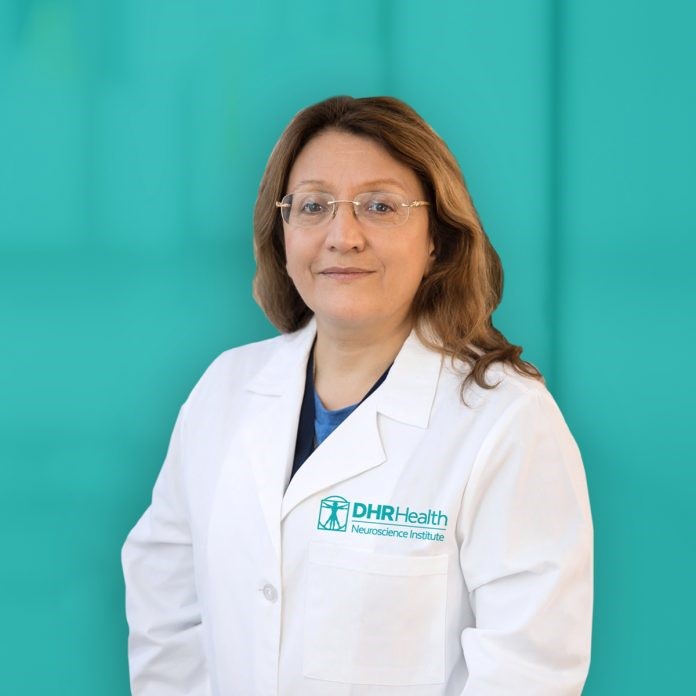
By Dr. Patricia Fernandez
DHR Health Neuroscience Institute
Brain cells begin to die fast when the arterial blood flow is blocked, preventing oxygen and nutrients from reaching the brain. This results in an ischemic stroke and represents a medical emergency. The effectiveness of stroke treatments is based on implementing them during the early stages of the process. Therefore, recognizing the signs and symptoms of stroke as soon as possible is critically important.
Problems speaking and understanding others, paralysis or numbness of the face, arm, or leg, vision problems, trouble with your balance or being unable to walk, as well as headaches, could indicate you are having a stroke.
If you believe you or someone else around you is experiencing stroke symptoms, even if those problems come and go, you should seek medical attention without delay.
Think “FAST”:
• Face – Ask the person to smile. Pay attention to any deviation of the mouth.
• Arms – Ask the person to raise both arms, looking for paralysis or drift.
• Speech – Ask the person to repeat a simple phrase. The person might be unable to speak or understand or have a slurred-speech pattern.
• Time – If you observe any of these signs, call 9-1-1 and get emergency medical help immediately. It is helpful to determine the exact time of onset of the problems.
Call 9-1-1 immediately because the longer the stroke remains untreated, the lower the possibilities of recovering. EMS providers are trained to recognize stroke’s presentation and to route the patient to a stroke center.
Stroke centers are medical facilities that have trained professionals to manage stroke emergencies, with physical resources dedicated to the care of this type of patient. Certifying entities recognize different levels of stroke centers. A Comprehensive Stroke Center (CSC) is the highest level of care designated by The Joint Commission. DHR Health is a CSC. CSC’s not only meet all the requirements of the lower categories of stroke centers, but they also provide advanced neuroendovascular and neurosurgical care, with staff on call 24 hours a day, seven days a week.
These centers have fast access to neuroendovascular procedures to treat ischemic stroke, such as mechanical thrombectomy, proven to increase the chances of functional recovery after suffering a stroke. Mechanical thrombectomies are procedures performed to remove a blood clot from inside the brain arteries, helping to re-establish normal blood flow to the brain. Emergency medical services (EMS) can provide unique assistance to stroke patients by taking them to the closest CSC. EMS providers identify potential candidates for this procedure so the patient may be provided the appropriate level of care.
DHR has been designated as a Comprehensive Stroke Center by the Joint Commission since 2018 and continues to proudly serve the local community. If you would like more information on stroke symptoms or would like to speak to one of our experts, please call DHR Health Neuroscience Institute at (956) 362- 8500.




